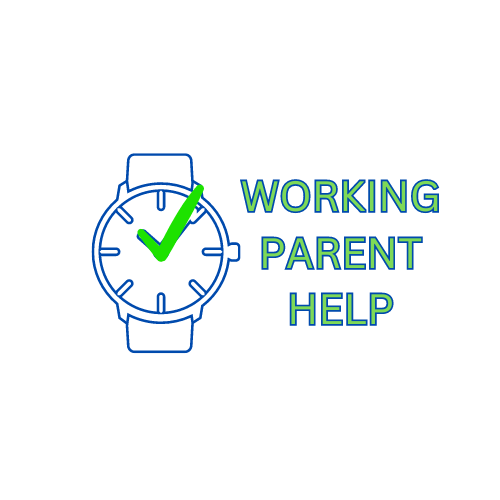
The Secret to Teaching Kids Patience in an Instant-Gratification World
Parenting in today’s world often feels like you’re trying to teach patience while surrounded by one-click ordering, instant streaming, and kids who think waiting for WiFi to connect is a personal attack. But despite living in an age where everything happens now, teaching patience is one of the greatest gifts we can give our kids. It helps them handle frustration, build resilience, and appreciate the value of effort.
So how do we teach patience when everything around them screams "why wait?" Here’s the game plan (and yes, it includes some lifesaving parenting hacks and must-have products to help you out!).
1. Model Patience (Even When You’re Out of Coffee)
The truth is, kids learn patience by watching us. If they see us honking at slow drivers, sighing loudly in checkout lines, or tapping our feet when the microwave takes too long (all 60 seconds of it), they’ll pick up on that impatience. Instead, use these moments as teachable ones.
Hack: Next time you're stuck waiting, verbalize your patience. “Looks like we have to wait, but that’s okay! Let’s use this time to play a game or talk about our day.”
Parenting Must-Have: MealPro Glass Meal Prep Containers (12 Pack)
Having meals prepped ahead of time prevents the "I'm starving right now" meltdowns, making waiting easier for everyone. Bonus: You’ll also avoid hangry tantrums—yours included.
2. Use Delayed Rewards (AKA The Cookie Jar Test)
Patience is built when kids learn that good things come to those who wait. Try setting up small challenges where waiting pays off.
Example: Tell your child they can have one cookie now or two cookies if they wait 15 minutes. The more they practice delaying gratification, the better they get at it.
Hack: Make waiting fun! Set a timer, play a song, or give them a task to distract them.
Parenting Must-Have: FreshEase 4-6 Grid Refrigerator Storage Box Organizer
Prepping fun snack compartments helps kids visually see the "reward" they’re waiting for. Plus, organizing snacks means no more mystery science experiments growing in the fridge!
3. Encourage Problem-Solving (Because You Won’t Always Be There to Fix It)
Kids get impatient when they’re stuck. Instead of jumping in to fix everything, guide them to find solutions on their own.
-
Instead of: "Let me tie your shoe for you."
-
Try: "You can do it! Want me to show you a trick to make it easier?"
Hack: Next time they struggle with a puzzle, a tricky toy, or even waiting for their turn, encourage them to figure it out before stepping in.
Parenting Must-Have: PlayNest Children's Organizer Container
This genius storage system teaches kids independence and patience as they learn to find and put away their toys instead of demanding you do it for them (again).
4. Practice Mindfulness (Before You Lose Your Sanity)
Mindfulness isn’t just for yoga-loving adults. Teaching kids to pause, breathe, and be in the moment helps them manage frustration and learn patience naturally.
Quick Activity: Try a “breathing buddy” exercise. Have your child lie down and place a small stuffed animal on their belly. Tell them to watch it rise and fall as they take slow, deep breaths. This simple trick helps them slow down and self-regulate.
Parenting Must-Have: SnugBelt Auto Shoulder Support Pillow
Perfect for long car rides where patience is tested to the max. This comfy pillow keeps kids relaxed and (hopefully) quiet while you focus on driving without hearing “Are we there yet?” every five minutes.
5. Praise Efforts, Not Just Results (Because the Journey Matters!)
Kids get discouraged when they only focus on winning or getting what they want fast. Instead, praise their effort and growth.
-
Instead of: "Wow, you finished first!"
-
Try: "I love how you kept trying, even when it was hard. That’s real patience!"
Hack: Use small incentives like sticker charts or a countdown calendar to show kids that effort pays off over time.
Parenting Must-Have: FridgeFresh Fridge Herb Keeper for Long Storage
Use this to store fresh herbs or veggies while teaching kids about waiting for food to ripen. Watching their "food experiment" develop helps reinforce patience in a fun, tasty way.
Final Thoughts: It’s a Marathon, Not a Sprint (Even If You Feel Like Running Away)
Teaching patience isn’t about perfection—it’s about progress. Some days will feel like you’re winning, and others will make you question your life choices. But every small effort you make helps shape a child who can handle frustration, delays, and challenges with grace.
So, take a deep breath, put that phone down (unless you’re ordering more coffee), and embrace the messy, hilarious, patience-testing moments of parenting.
What’s Your Best Patience Hack?
We’d love to hear your funny, frustrating, and brilliant parenting moments! Drop a comment below or check out our other parenting survival guides. Because let’s face it—none of us have this 100% figured out, but we’re all in this together!
